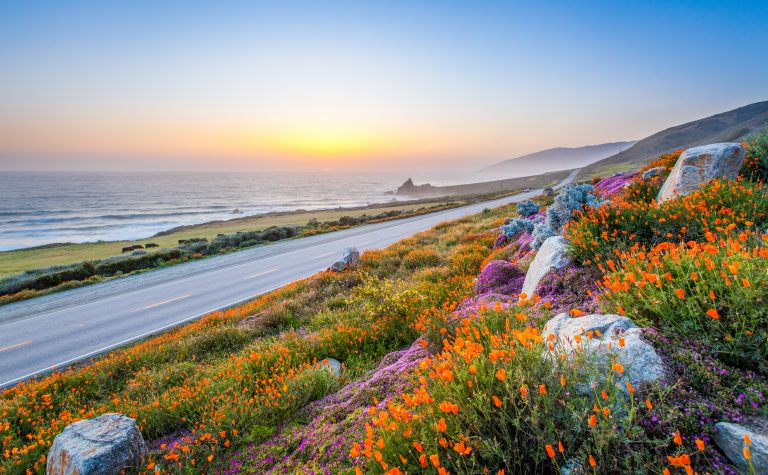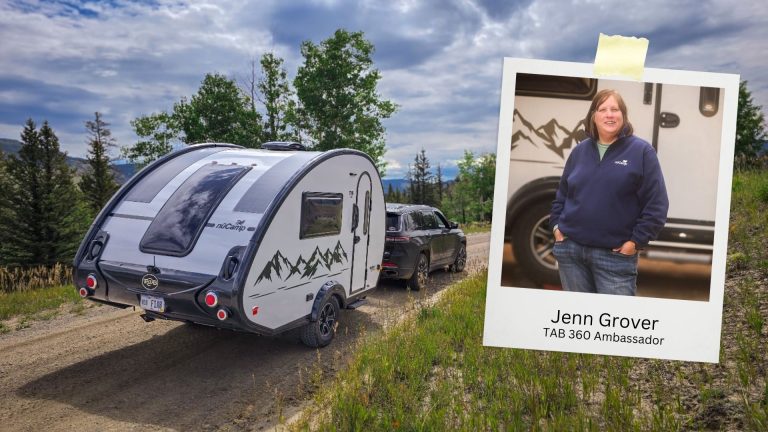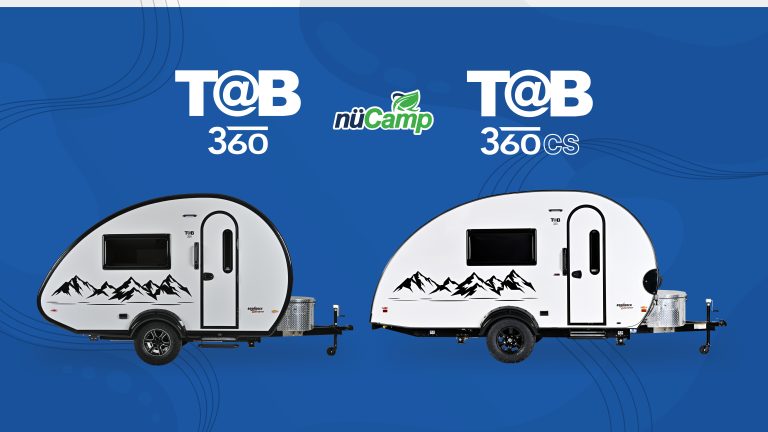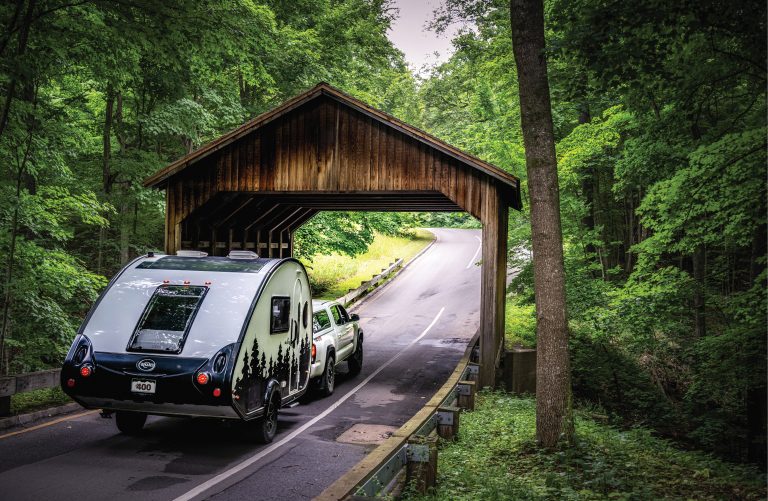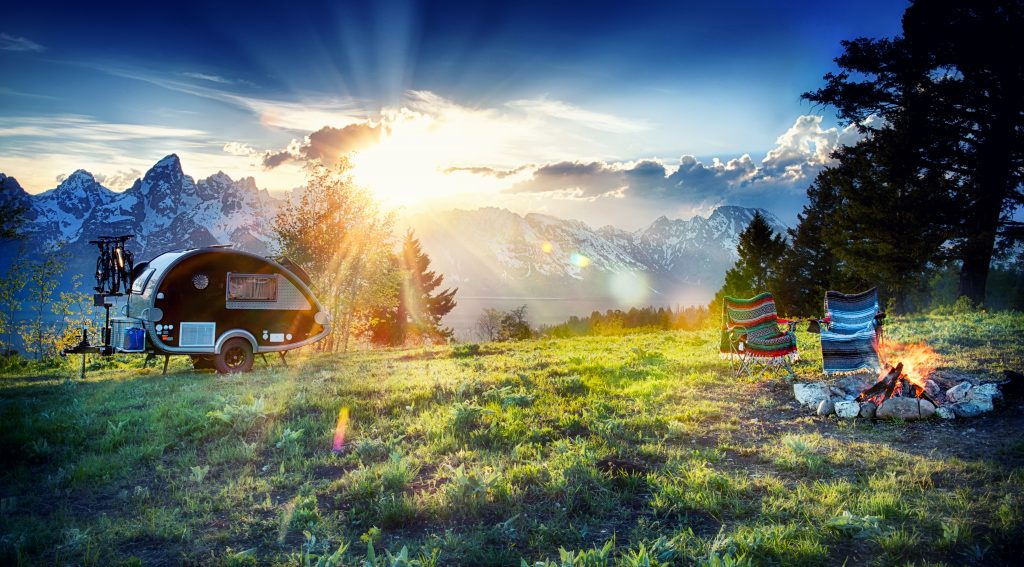You’ve done the whole RV campground thing, where you enjoyed the convenience of full hookups and dump stations. Maybe you’ve even experimented with partial hookup locations for a day or two. So now you’re ready to go boondocking, parking your rig out in the wilderness and camping off-the-grid.
Before you head out to places without power, water or sewer service, make sure you have the following essentials. Recommended by experienced boondockers, these items will keep you comfy and safe while you enjoy the great outdoors.
Solar System
The benefit of a solar system is that it reduces your need to run your generator for electricity. RV Share breaks down the components of a basic solar system:
- RV solar panels that convert the sun’s energy to power
- A solar charge controller that takes the power from the panels, sends it to your RV’s battery system, controlling it to prevent overcharging the batteries.
- An inverter that takes the stored power and changes it from DC to AC power, the kind that most devices (think household items) run on.
Not sure how big to go in your quest for a solar power setup? The Fit RV blog and eTrailer both have information on how solar power works and what to consider when choosing a system that will fit your needs.
Generator
A solar system is good but Mother Nature can sometimes fail to deliver sunshine when you need it. A generator will keep the electricity flowing even when the sun isn’t glowing. If you need to buy a generator, Go RVing recommends picking one based on the size of your camper and your electricity needs. This isn’t a case of “go big or go home.”
Generators can be diesel-powered (cleaner than gasoline and more power than propane), liquid propane-powered (less power but longer shelf life) or gasoline-powered (cheap and available but highly flammable). This RV Share post breaks down the types of generators and the factors to consider.
Tom Zibinski and his wife Nancy Lauby, who purchased their AVIA last year, have added two generators to their set-up. As Tom explains, “The AVIA is very electric, and with no hookups, a generator is essential especially if you like air conditioning. We bought two Honda 2200i’s which can be linked to get 4400 watts and do a/c, microwave and everything else. At 47 pounds each, they can be carried easily and are also fairly quiet. I’m converting them to propane with an online kit so that we don’t have to carry gasoline.”
Tip: Switching to LED lights conserves energy and reduces the draw on your rig’s batteries.
Propane Heater
High altitudes or unexpected weather changes can turn your RV into a cold storage unit. After a certain point, you’ll need more than warm blankets and long johns to be comfortable. A propane space heater can be more efficient to your RV’s furnace, says Critical Cactus.
However, RV Share points out that, unlike your RV’s furnace, space heaters won’t keep the pipes and tanks in your RV from freezing in very cold weather. And regardless of which you choose, you’ll need to have both a carbon monoxide detector and a propane detector, since propane leaks can be deadly.
3 Other Useful Items
Cell Phone Signal Booster
An emergency arises and you need to call for help. Unfortunately, your cell phone is registering no service—a situation that could have been avoided had you come prepared with a cell phone signal booster. A signal booster can change your no-bar status to at least a one- or two-bar one, boosting cellular reception and improving cell phone signal strength. (For a detailed overview, read Signal Booster’s What is a cell phone signal booster and how does it work?)
While you’re traveling, Waveform.com recommends locating the cell booster’s indoor antenna directly next to either your phone or a hotspot device. Then use WiFi and Bluetooth to connect through that device for Internet access and voice calls. (Staying at a campsite? Install a booster designed for homes instead, says Waveform.com.) Note: Be sure to register your signal booster with your cell phone carrier to be in compliance with FCC regulations.
Portable Water Container
Critical Cactus lists RV water bladders as a must-have to avoid having to leave your spot in search of water. The site recommends choosing containers made from rigid, BPA free plastic, preferably with a built-in pour spout. And to further conserve your water supply, install low-flow water-saving faucet aerators and showerheads. According to Critical Cactus, this can save up to 50% water and get better water pressure.
One final tip: bring along water filters just in case. Types include a basic exterior filter that you connect to your fresh water hose, a portable water filter that filters bacteria from any clear water source, and under-the-sink filters for cleaner and better-tasting water right from the tap.
Headlamp and Lights
While you might think headlamps are just for miners, the first time you need to go outside in the dead of night, you’ll be glad to have a light source that leaves your hands free for whatever you need to do. Then add some solar-powered clip-on lamps and a good quality flashlight to your stock of lighting supplies.
Once you’ve had a few boondocking trips under your belt, you’ll probably add a few other items to your must-have list.
Recent Articles
